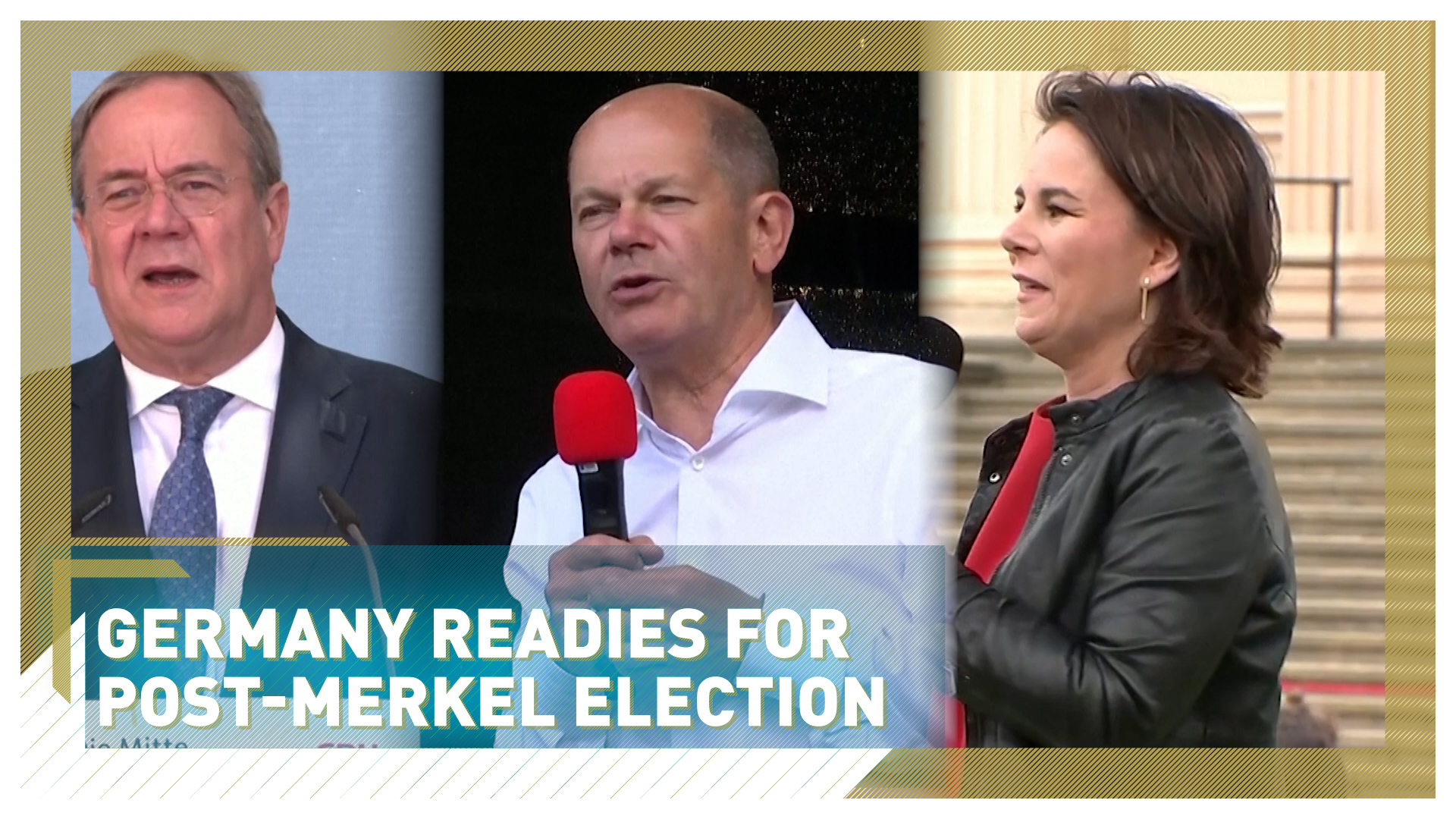02:45

German voters will head to the polls on Sunday for a national election that will reshuffle power in the Bundestag (parliament) and leave the country with a new Chancellor.
For the first time in 16 years, Angela Merkel isn't standing in the election and will retire once a new government is formed.
A contentious campaign to replace her has been underway for much of the summer, after a quiet spring that was marked by COVID-19 lockdown restrictions.

German Chancellor Angela Merkel and Christian Democratic Union (CDU) party leader and candidate for chancellor, Armin Laschet, attend a rally, in Aachen, Germany, September 25, 2021. Reuters/Wolfgang Rattay
German Chancellor Angela Merkel and Christian Democratic Union (CDU) party leader and candidate for chancellor, Armin Laschet, attend a rally, in Aachen, Germany, September 25, 2021. Reuters/Wolfgang Rattay
Who's vying to be Germany's next Chancellor?
Polling suggests that three candidates have a shot at becoming the nation's next Chancellor.
Leading in the polls is Olaf Scholz of the left-leaning Social Democrats (SPD). Scholz is regarded as a dry, but stable leader of Germany's Finance Ministry. He's cast himself as Merkel's heir on the campaign trail.
However, that title is up for debate. The Chancellor has not endorsed him and has publicly campaigned with her own party, the Christian Democrats (CDU). It has put forward North-Rhine Westphalia premier and party head Armin Laschet to lead the next Government, if victorious. Laschet has struggled to command the same likability with voters as Merkel has.
Polling third place after weeks at the top in Spring 2021 is the Greens. For the first time in the party's history, it has named a candidate for Chancellorship, party co-leader Annalena Baerbock.

Olaf Scholz, Germany's Social Democratic Party candidate for general election, smiles during the final election campaign event of party, in Cologne, Germany, September 24, 2021. Martin Meissner/Pool via Reuters
Olaf Scholz, Germany's Social Democratic Party candidate for general election, smiles during the final election campaign event of party, in Cologne, Germany, September 24, 2021. Martin Meissner/Pool via Reuters
What do the polls say?
It's increasingly looking like SPD candidate Olaf Scholz will be at the head of Germany's next government, according to polls published over the last few weeks.
The latest polling from Friday has kept him ahead of Armin Laschet, though the CDU has seen a slight uptick in support.
However, some surveys suggest that as many as four in ten voters are still undecided which would be more than enough to erase any comfortable early polling lead.

Co-leader of Germany's Alliance 90/The Greens party, Annalena Baerbock, speaks during a final rally ahead of the general election, in Duesseldorf, Germany, September 24, 2021. Reuters/Leon Kuegeler
Co-leader of Germany's Alliance 90/The Greens party, Annalena Baerbock, speaks during a final rally ahead of the general election, in Duesseldorf, Germany, September 24, 2021. Reuters/Leon Kuegeler
How do German elections actually work?
Voters don't directly elect the next Chancellor but choose a political party that will eventually form a new government in the parliament. No party is likely to win an outright majority of seats, meaning a coalition government will need to be formed.
Political analysts expect talks between parties to last several weeks or months.
The nation counts more than 50 registered parties, but fewer than ten are eligible to send representatives to parliament because of a minimum requirement for five percent of all votes.

